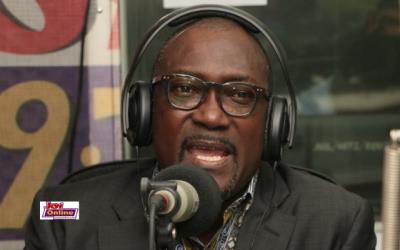The Executive Director of the Ghana Center for Democratic Development (CDD-Ghana) has defended the Supreme Court’s ruling upholding the right of Deputy Speakers of Parliament to vote.
According to Prof. H. Kwasi Prempeh, it is “a constitutionally correct decision, no matter what one might feel about the outcome politically.”
The Apex Court presided over by Justice Jones Dotse ruled that a Deputy Speaker can be counted during the formation of a quorum for Parliamentary decision-making and participate in voting while presiding over the parliamentary business.
There has been an enormous uproar following the judgement. While the Majority Caucus described it as a ‘refreshing’ outcome.
Many, particularly the Minority in Parliament, says the ruling is absurd and could destroy the processes in the House.
But Prof Prempeh argued that “the longevity of a practice does not cloak that practice with constitutionality.”
“No matter how longstanding a practice, its constitutionality cannot be established or presumed until and unless it is challenged in an appropriate constitutional case. Thus, the fact that this is how Parliament has done its business all this while is not a good enough argument, constitutionally speaking.”
Prof. Prempeh also believes that the influence of Deputy Speakers has been overestimated in the ongoing controversy.
“Presiding does not, in and of itself, present much of a conflict of interest to cause a Deputy Speaker to forfeit their vote, especially if he or she were to be required by House rules to vote last or cast a vote; only when there’s a tie.”
He subsequently suggested that “if we do not want presiding Deputy Speakers to vote, the solution is simple: Don’t let them be MPs. Make them like the Speaker; not an MP and, therefore, not entitled to vote.”
“As long as presiding Deputy Speakers are, first and foremost, MPs elected to represent communities of voters in Parliament, Parliament cannot reasonably deprive them of their right to vote merely by virtue of the fact of presiding over a sitting of Parliament.”
Nevertheless, Prof. Prempeh said there is no need for a constitutional amendment for his proposal.
“There’s nothing really wrong with both Deputy Speakers being MPs and retaining their vote when they preside. This is why we must take the Constitution seriously when it says that the 1st and 2nd Deputy Speakers must come from different parties.”
“That way, the rival parties in Parliament will each have one Deputy Speaker, both of whom get to vote when they preside,” he added.
Latest Stories
-
Two hit by stray bullet as Police clash with ‘wee smokers’
6 mins -
Okyeame Kwame aims for another Artiste of the Year win after 15 years
17 mins -
NAGRAT gives government one-week ultimatum to redeem unpaid pensions for 700,000 workers
20 mins -
Deloitte launches Technology, Media and Telecom predictions for 2024
37 mins -
Meta AI expands to Ghana, Nigeria and other countries in Africa; adds new features
48 mins -
GPL: Expect a new Kotoko against Samartex – Ogum tells fans
2 hours -
Court orders service of notice for DNA test to Mohbad’s wife
2 hours -
Changes to Ghana’s oil and gas royalty and licensing scheme to be implemented in 2024
2 hours -
Ghana’s oil production to rebound in 2024 growing by 5% – Fitch Solutions
2 hours -
Davido gifts fan $50K to clear off her student loan
2 hours -
Netflix: Profits soar after password sharing crackdown
2 hours -
OSP files additional charges against former PPA CEO Adjenim Boateng Adjei
2 hours -
Samuel Anini’s ‘Legacy of Hope’ to be launched in Finland
2 hours -
Fitch Solutions projects 19.0% average inflation for Ghana in 2024
2 hours -
Beijing half marathon: Top 3 stripped of medals after investigation
2 hours

